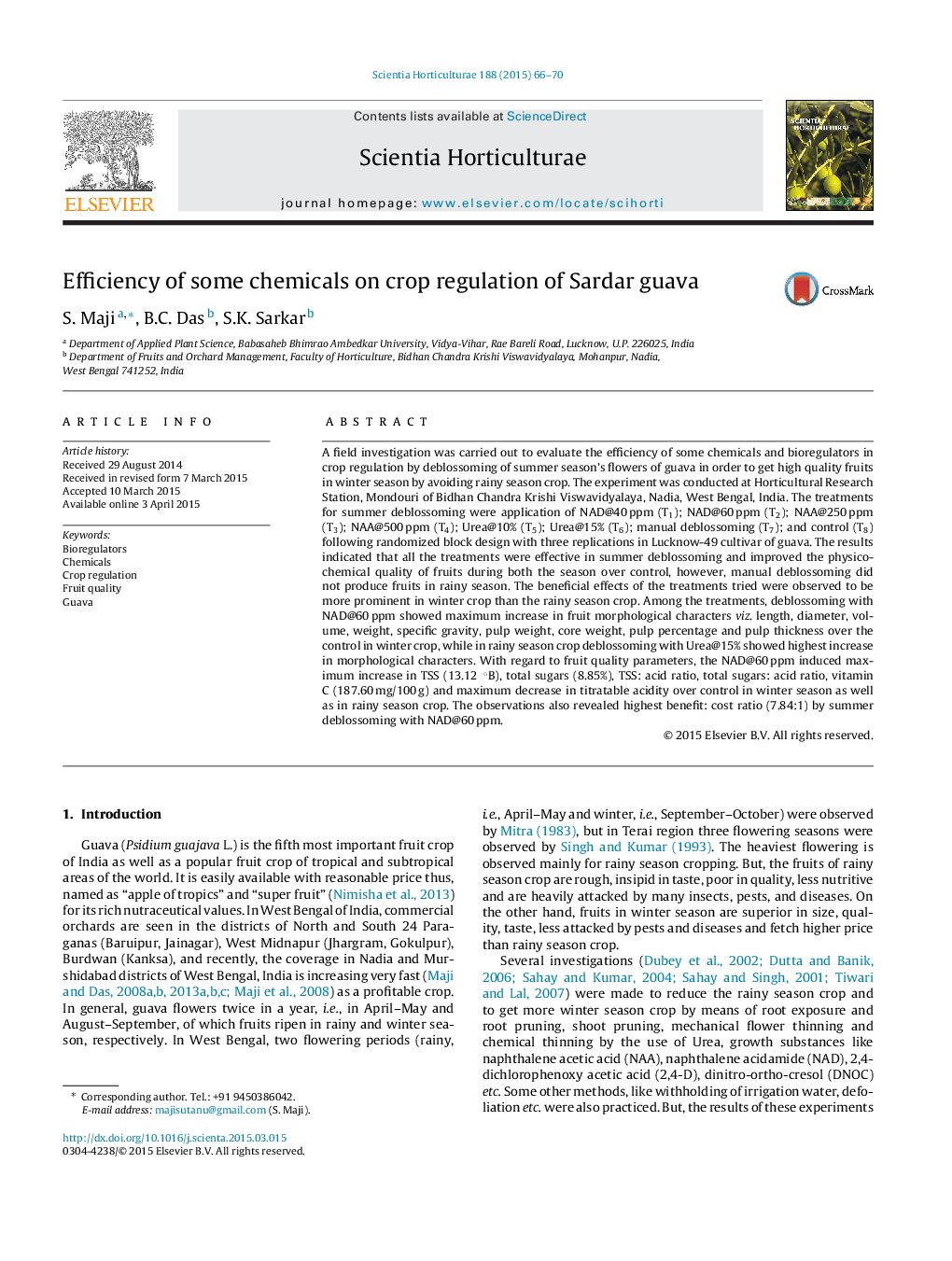| کد مقاله | کد نشریه | سال انتشار | مقاله انگلیسی | نسخه تمام متن |
|---|---|---|---|---|
| 4566385 | 1628810 | 2015 | 5 صفحه PDF | دانلود رایگان |
• Winter season guava is superior in quality.
• Growers could get more profit from winter cropping.
• Sardar guava (cv. L-49) was responsive to crop regulation.
• Summer deblossoming with NAD@60 ppm was the best for crop regulation.
A field investigation was carried out to evaluate the efficiency of some chemicals and bioregulators in crop regulation by deblossoming of summer season's flowers of guava in order to get high quality fruits in winter season by avoiding rainy season crop. The experiment was conducted at Horticultural Research Station, Mondouri of Bidhan Chandra Krishi Viswavidyalaya, Nadia, West Bengal, India. The treatments for summer deblossoming were application of NAD@40 ppm (T1); NAD@60 ppm (T2); NAA@250 ppm (T3); NAA@500 ppm (T4); Urea@10% (T5); Urea@15% (T6); manual deblossoming (T7); and control (T8) following randomized block design with three replications in Lucknow-49 cultivar of guava. The results indicated that all the treatments were effective in summer deblossoming and improved the physico-chemical quality of fruits during both the season over control, however, manual deblossoming did not produce fruits in rainy season. The beneficial effects of the treatments tried were observed to be more prominent in winter crop than the rainy season crop. Among the treatments, deblossoming with NAD@60 ppm showed maximum increase in fruit morphological characters viz. length, diameter, volume, weight, specific gravity, pulp weight, core weight, pulp percentage and pulp thickness over the control in winter crop, while in rainy season crop deblossoming with Urea@15% showed highest increase in morphological characters. With regard to fruit quality parameters, the NAD@60 ppm induced maximum increase in TSS (13.12 °B), total sugars (8.85%), TSS: acid ratio, total sugars: acid ratio, vitamin C (187.60 mg/100 g) and maximum decrease in titratable acidity over control in winter season as well as in rainy season crop. The observations also revealed highest benefit: cost ratio (7.84:1) by summer deblossoming with NAD@60 ppm.
Journal: Scientia Horticulturae - Volume 188, 4 June 2015, Pages 66–70
